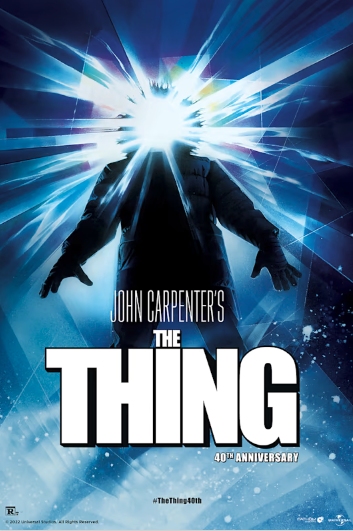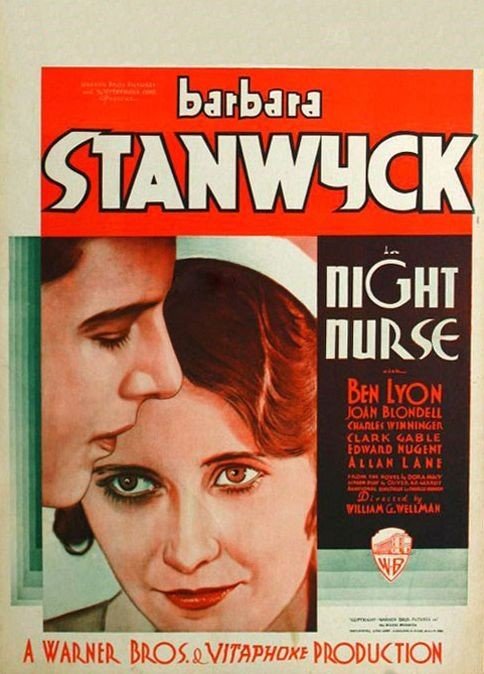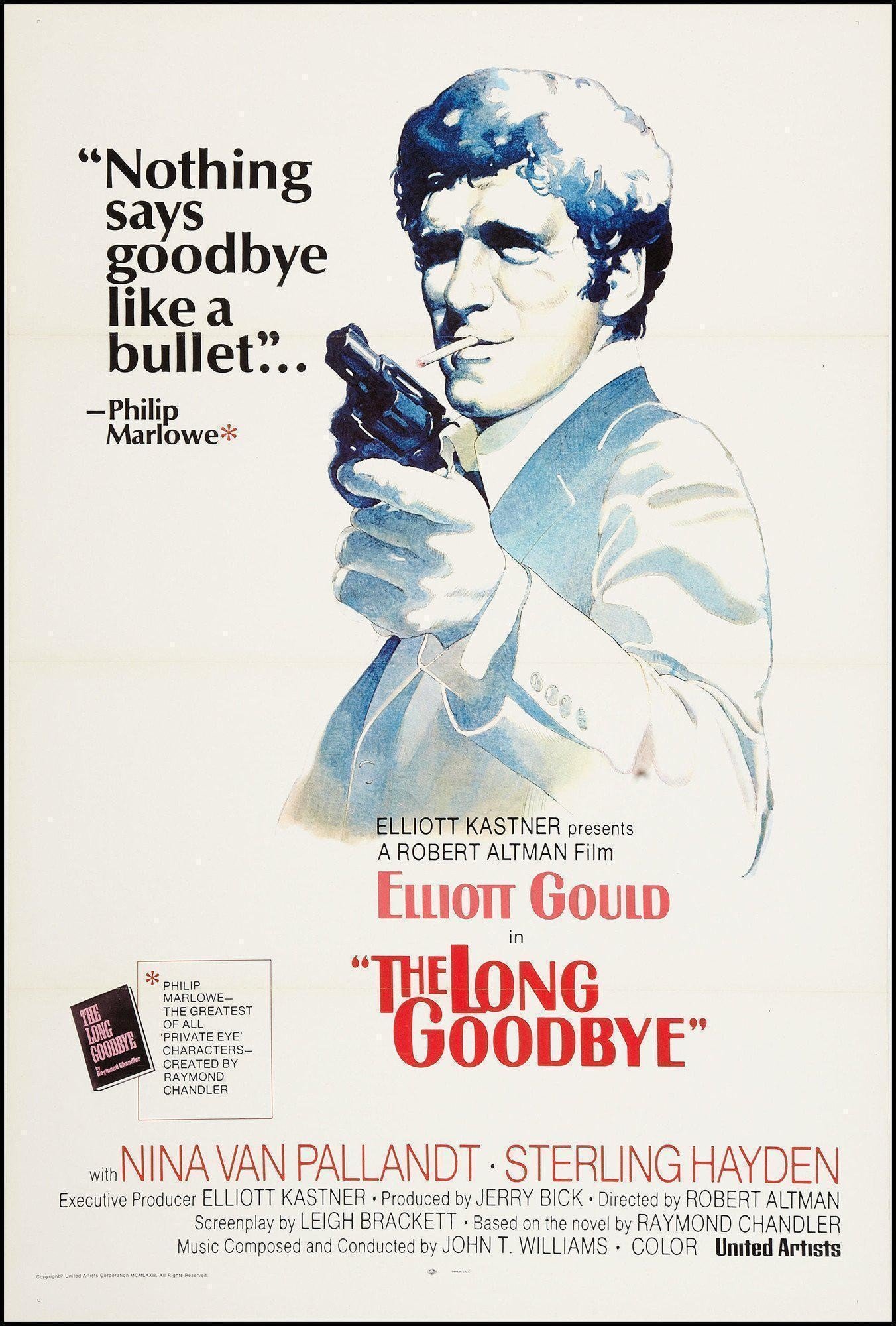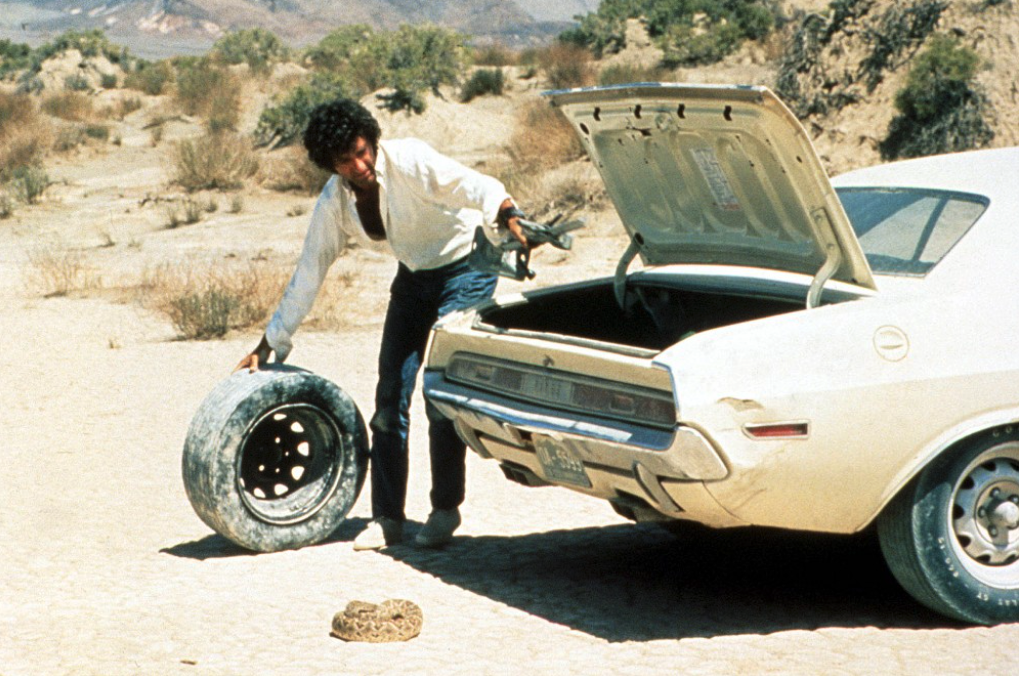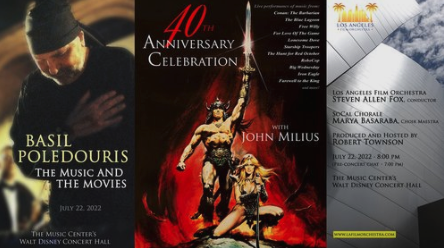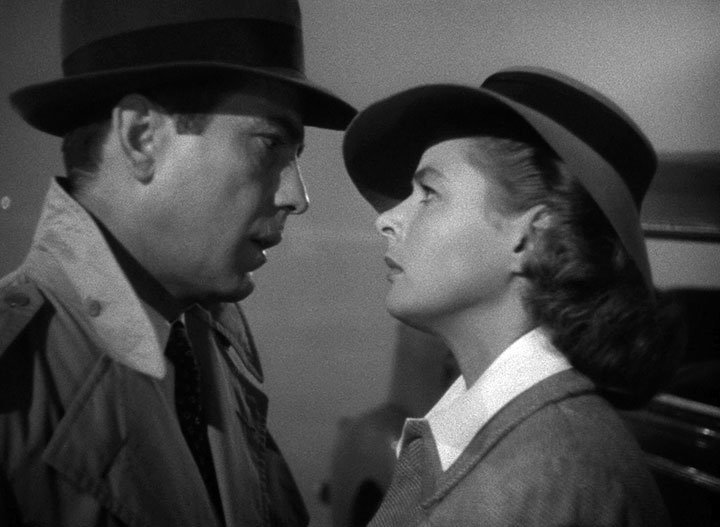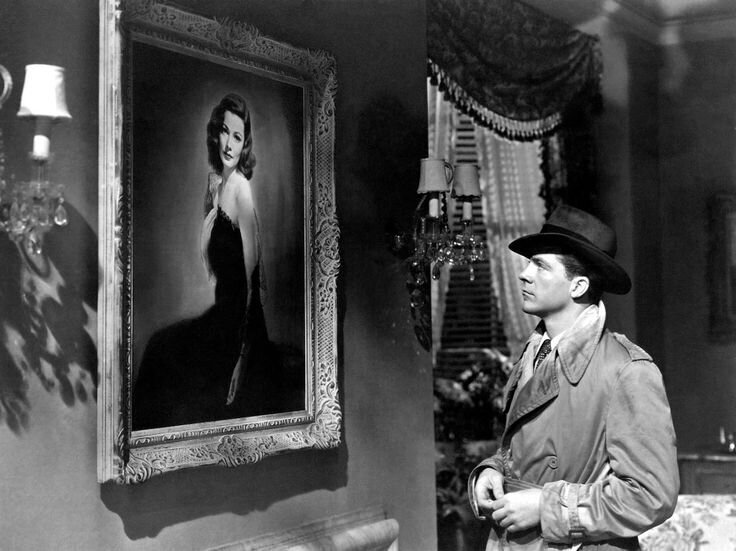"Now Listen to Me..."
Just some thoughts on current happenings:
Classic film screenings from around the world this July include:
In San Francisco, California The San Francisco Symphony will present The Matrix (1999) with live musical accompaniment featuring Don Davis’ exhilarating score with Don Davis himself conducting on Friday, July 1 and Saturday, July 2.
Click on the above image for more information.
In Los Feliz, (part of greater Los Angeles) California, The American Cinematheque Los Feliz 3 Theatre will present Dirty Harry (1971, a 35mm print) Saturday, July 2, Cape Fear (1991, a 35mm print) Tuesday, July 5, and Pather Panchali (1955) on Thursday, July 7. In addition, The American Cinematheque Aero Theatre Santa Monica (part of greater Los Angeles) will present Short Cuts (1993, a 70mm print) Saturday, July 9 and Sunday, July 17, Dunkirk (2017, a 70mm print) Sunday, July 10, Lawrence of Arabia (1962, a 70mm print) Saturday, July 16, Vertigo (1958, a 70mm print) Friday, July 22, Spartacus (1960, a 70mm print) Sunday, July 24, It’s a Mad, Mad, Mad, Mad World (1963, a 70mm print) Saturday, July 30 and The Wild Bunch (1969, a 70mm print) on Sunday, July 31.
For more information specifically on each of these programmes, click on the corresponding above image. To see the entire month of July’s programming for both the The Los Feliz 3 and Aero Theatre (the latter in Santa Monica) click on the American Cinematheque banner.
In Liverpool, United Kingdom, The Royal Liverpool Philharmonic Orchestra will present The Great Escape (1963) with live musical accompaniment featuring Elmer Bernstein’s thrilling score on Saturday, July 2.
Click on the above image for more information.
In theatres across the U.S. Flashback Cinema is presenting Indiana Jones and the Last Crusade (1989) Sunday, July 3 and Wednesday, July 6, Poltergeist (1982, as part of this film’s 40th Anniversary) Sunday, July 17 and Wednesday, July 20, and Goodfellas (1990) on Sunday, July 24 and Wednesday, July 27.
Click on the respective poster image for more information. To see the entire month’s programming, click on The Flashback Cinema banner above.
In Valencia, Spain, Culturarts Generalitat IVAC – La Filmoteca at the Edificio Rialto will be presenting Black Rain aka Kuroi ame (1989, as part of a tribute to the San Sebastian Film Festival’s 70th Anniversary) Wednesday, July 6 and Sunday, July 10, and Miller’s Crossing (1990, as part of a tribute to the San Sebastian Film Festival’s 70th Anniversary) on Saturday, July 9 and Sunday, July 10.
Click on the respective film’s image for more information on each screening. To discover more of July’s programming, click on the banner image above.
In theatres across the U.S., Fathom Events is presenting The Thing (1982, as part of this film’s 40th Anniversary) Wednesday, July 6, and Cabaret (1972, as part of this film’s 50th Anniversary) on Sunday, July 17 and Wednesday, July 20.
Click on the film’s poster image for more information. To see this month’s entire schedule, click on The Fathom Events banner above.
In Vancouver, B.C. (Canada) The Vancouver Symphony Orchestra will present Star Wars: Return of the Jedi (1983) with live musical accompaniment featuring John Williams’ spectacular score on Wednesday, July 6 and Thursday, July 7.
Click on the above image for more information.
In London, United Kingdom The Prince Charles Cinema will present First Blood (1982, a 4k presentation, as part of this film’s 40th Anniversary) Thursday, July 7, Night Nurse (1931, as part of their Pre-Code Hollywood Series) Thursday, July 7, Mad Max 2: The Road Warrior (1982, a 35mm print) Friday, July 8 through Thursday, July 14, Full Metal Jacket (1987, a 35mm print) Saturday, July 9, Watermelon Man (1970) Friday, July 15 and Tuesday, July 19, The Long Goodbye (1973, a 35mm print) Monday, July 18, Casino (1995, a 35mm print, as part of this film’s 25th Anniversary) Monday, July 18, The Gambler (1974, a 35mm print) Wednesday, July 20, Taxi Driver (1976, a 35mm print) Saturday, July 23 and Tuesday, July 26, Mad Max: Fury Road [Black & Chrome Edition] (2015) Monday, July 25, The Black Cat (1934, as part of their Pre-Code Hollywood Series) Wednesday, July 27, and Alien [The Director’s Cut] (1979, a 35mm print) on Friday, July 29 and Thursday, August 4.
Click on the film’s respective image for more information. To see July’s complete programming, click on The Prince Charles Cinema banner above.
In New York City, New York, Film Forum is presenting TOSHIRŌ MIFUNE REDUX from July 8 - 21 A 2-week, 10-film series celebrating the legendary Japanese actor's collaborations with director Akira Kurosawa, all presented in 35mm with a new 4k restoration of RASHOMON. Just a few of the highlights include Seven Samurai (1954, a 35mm print) Friday, July 8 through Thursday, July 21 and High and Low (1963, a 35mm print) on Saturday, July 9, Monday, July 11 and Friday, July 15. Also being presented this month is Vanishing Point (1971, with an introduction by author Scott McGee) Tuesday, July 12, and The French Connection (1971, with an introduction by author Scott McGee) on Wednesday, July 13. From Friday, July 22 - Thursday, August 11 Film Forum will be presenting “1962…1963…1964” A 3-week, 35-film series spotlighting the rich 3-year period in cinematic history. Included will be films by Stanley Kubrick, David Lean, Federico Fellini, François Truffaut, Jacques Demy, John Ford, Richard Lester, Agnès Varda, Roman Polanski, Jean-Luc Godard, Tony Richardson, Sergio Leone, Luis Buñuel, Francis Ford Coppola, Alfred Hitchcock, and many others.
For information on these or other films in the TOSHIRŌ MIFUNE series or films in the “62…63…64” series, click on the corresponding image above. For information on all of the films playing this month, click on the Film Forum banner above.
In London, United Kingdom The Royal Philharmonic Concert Orchestra will present Titanic (1997) with live musical accompaniment featuring James Horner’s magnificent score on Sunday, July 10.
Click on the above image for more information.
In Auckland, New Zealand Academy Cinemas is presenting A Clockwork Orange (1971) Wednesday, July 13, Yojimbo (1961, as part of Academy's Japanese Director Showcase July 15-31) Friday, July 15, Ugetsu (1951, as part of Academy's Japanese Director Showcase July 15-31) Monday, July 25, and Late Spring (1949, as part of Academy's Japanese Director Showcase July 15-31) on Sunday, July 31.
To obtain more information specifically on each of these programmes, click on the corresponding image. Other films showing in the Japanese Director’s Showcase can be seen by clicking on the banner image above. To see the entire month of July’s programming, click on the Academy banner above.
In Los Angeles, California The Beverly Cinema will present Woman in the Dunes (1964, a 35mm print) Thursday, July 14 and Friday, July 15, and The Good, the Bad and the Ugly (1966, a vibrant I.B. Technicolor 35mm print) on Thursday, July 21, Friday, July 22, Saturday, July 23 and Sunday, July 24.
Click on the film’s respective image for more information. To see the rest of July’s schedule, click on The Beverly Cinema banner above.
In Los Angeles, California Secret Movie Club is presenting at The Million Dollar Theater Movie Palace The Mark of Zorro (1920, a 35mm print, accompanied by a live original score composed and performed by the Jack Curtis Dubowksy Orchestra) on Saturday, July 16.
For more information on this screening, click on the above movie image. To discover other screenings organised by this group, click on the theatre image above.
In São Paulo Brazil, The Orchestra & Chorus conducted by Ben Phelps will present Lord of the Rings: The Two Towers (2002) with live musical accompaniment featuring Howard Shore’s majestic score on Saturday, July 16 and Sunday, July 17.
Click on the above image for more information.
In Los Angeles, California The Los Angeles Film Orchestra conducted by Steve Allen Fox will be presenting “Basil Poledouris: The Music and The Movies” on Friday, July 22. Although it is not a specific film screening, the dearly departed film composer’s many fans will certainly want to know about this very special concert. Special guests so far announced include:
John Milius, Writer/Director (Conan: The Barbarian, Red Dawn)
Randal Kleiser, Director (The Blue Lagoon)
Don MIscher, Event Producer
Christopher Lennertz, Composer
Mark Watters, Composer
John Ottman, Composer
John Debney, Composer
John Frizzell, Composer
Diego Navaro, Composer
Richard Kraft, Agent and Talent Management
Doreen Ringer-Ross, Industry Executive
Jon Burlingame, Author and Journalist
Click on either of the above 2 images for more information.
In Melbourne, Australia The Astor Theatre is presenting Queen Christina (1933) Sunday, July 24, and Casablanca (1942, a 4k digital presentation, as part of this film’s 80th Anniversary) on Saturday, July 30.
Click on the film’s image for more information about each individual screening. To see the rest of July’s schedule, click on The Astor Theatre banner above.
There are 22 recommended films to watch on Turner Classic Movies in the U.S. this month:
Director Howard Hawks was known for his confident, straight-forward westerns like Rio Bravo, El Dorado and Red River, this last of which is perhaps his finest. Selected and reviewed as one of the Top Ten (#6) westerns here, the story concerns the opening of the Chisholm Trail, used after the Civil War to drive cattle from Texas to Kansas. John Wayne plays one of his darker, least heroic characters most earnestly. The drive will begin Friday, July 1 at (early morning) 12:45 am PDT.
The unmissable Busby Berkeley extravaganza Footlight Parade is also a previous TCM recommendation here. Let the show begin Friday, July 1 at 12:45 pm PDT.
John Huston's Reflections in a Golden Eye is a film I have mixed feelings about. The rather strange inhabitants of these southern Gothically-tinged surroundings may remain underdeveloped but the performances from its superbly chosen cast compensate by genuinely conveying their characters' frustrations and desires making this an engrossing film-watching experience. It is a previous TCM recommendation here, and is worth eyeing Saturday, July 2 at 11 pm PDT.
Last year saw the sad passing of Cicely Tyson (See: End Credits) who made a genuine heartfelt impression in The Heart is a Lonely Hunter, a previous TCM recommendation here. Viewers can realise a wealth of emotion by tuning in Sunday, July 3 at (early morning) 1 am PDT.
For an uproarious and thoroughly engaging movie-watching experience, it's hard to beat Bringing Up Baby previously recommended here. The antics will begin on TCM Sunday, July 3 at 9 am PDT.
Many readers have taken me to task for my inclusion of Casablanca on a list of “All that Glitters”: The Overrated. I would simply ask that they read what I wrote about this revered classic before judging me too harshly. There is much to praise about the film contained in my review and the weaknesses I've discovered are, I feel, worthy of consideration. In any event, please indulge in this motion picture's magic and then let me know if my criticisms have value. The journey begins Sunday, July 3 at 11 am PDT.
Rarely does an atmosphere of such overpowering dread subsume a cinematic story so completely as it does 1943's The Seventh Victim. A young woman (portrayed as a fetching innocent by Kim Hunter) goes searching for her missing sister (enigmatically played by Jean Brooks) in New York City's Greenwich Village and stumbles upon a satanic cult of devil worshipers, putting both of their lives at risk. Mark Robson, who directed a number of these Val Lewton produced gems, is himself at the peak of his considerable creative powers. This devilishly striking combination of horror and film noir was a previous TCM recommendation and reviewed here. The fate of both sisters will be determined Tuesday, July 5 at 8 am PDT.
1944’s Laura is director Otto Preminger’s slick and assured amalgamation of mystery (whodunnit) and film noir (obsessive desire, gruesome murder etc) elements. This film was briefly reviewed here. Included is a comparison between the detective played by Dana Andrews and James Stewart’s retired investigator in Vertigo. Laura will come to life on TCM Tuesday, July 5 at 7 pm PDT.
One of David Lean's more ambitious projects may have turned out less artistically accomplished than its director intended. Still, it has many attributes making Doctor Zhivago well worth seeing. Afterwards, I'd be truly appreciative if readers had a look at my review here. This epic scale romance will begin Thursday, July 7 at 11 pm PDT.
An Edward G. Robinson starring film to see is Dark Hazard: Hidden Gem #52. This has also been previously reviewed as a TCM recommendation here. He’ll race from the gate Friday, July 8 at 1:45 pm PDT.
My next TCM recommendation has been previously reviewed here and is the story of Bonnie and Clyde only re-imagined as the mythical romantic exploits of an impossibly gorgeous but infamous couple in crime. The Barrow Gang will strike on TCM Saturday, July 9 at 5 pm PDT.
Recently in a Facebook film chat room someone asked which film was better, Casablanca (showing earlier this month and reviewed above) or Citizen Kane. This caused me to think about their differences, more specifically their varied approach to dramatic storytelling, to which I responded:
"I think Casablanca has, for many, a far more instantly recognisable appeal, including its characters some of whom possess highly emulative qualities. Its emotional pleas are up front and easy to assimilate. Citizen Kane has more complexity, flawed characters who are invested in the past, relationships that are changing and developing, mostly in a tragic way. Casablanca ends with heroic sacrifice and optimism. Kane is dire and ultimately about loss. Casablanca's highlights remind one of its pleasures, immediate and gratifying. Kane is a deeply contemplative journey, requiring a significant investment of thoughtful consideration on the viewer's part in order to uncover its enormous wealth of profound insight into human relations."
Casablanca was shown earlier this month. Citizen Kane, previously recommended here, will be presented Saturday, July 9 at 10:30 pm PDT.
Just missing out on my list of Top Ten Westerns (in favour of another Bud Boetticher directed/Burt Kennedy scripted film The Tall T) was Ride Lonesome, a highly distinctive and concise story told with a strong sense of purpose and sophistication. This must-see film starring Randolph Scott was previously reviewed here and will arrive on TCM Tuesday, July 12 at 3:30 pm PDT.
After World War II, many returning servicemen were disillusioned to find jobs were scarce and their wives’ (or girlfriends’) faithfulness even scarcer. The Best Years of Our Lives addresses this reality head on when the Dana Andrews character finds it impossible to please either his previous employer or trophy wife upon his return to civilian life. Perhaps for this narrative distinction, authors Borde and Chaumeton referred to The Best Years of Our Lives in their highly respected book “Panorama of American Film Noir 1941 - 1953”, the first to be published on the subject.
The film portrays no crime, the focus is not on Andrews’ experiences alone, and he comes out better off at the end without his superficial but admittedly gorgeous wife, which for myself, collectively place this film well outside of noir’s dark and gloomy world of illegal activity. Previously, I highly praised The Best Years of Our Lives for its exceptional musical score composed by Hugo Friedhofer in the first part of a series entitled Top Ten: Motion Picture Music Treasures. This emotionally powerful tour de force will commence on TCM Tuesday, July 12 at 5 pm PDT.
Film noir has few representatives as dourly defeatist or as forcefully communicative on the subject of human relations than 1945's Scarlet Street, previously reviewed here. Edward G. Robinson as Christopher Cross will take his fateful walk down that dark and foreboding street in host Eddie Muller’s Noir Alley Saturday, July 16 at 9:15 pm PDT and again on Sunday, July 17 at 7 am PDT.
Next is Strange Cargo which I previously listed as one of my TOP TEN Guilty Treasures. "Strange" is the word for this uneasy but fascinating blend of religious parable, hardened convicts, a test of survival and wisecracking romance. Strange Cargo will dock at TCM Sunday, July 17 at 5 am PDT.
Then there's Ingmar Bergman's masterpiece: the exquisite romantic-comedy Smiles of a Summer Night, one of the finest motion pictures ever made (listed in my Top Ten: World Cinema Treasures). This is scheduled to show on TCM Monday, July 18 at (early morning) 1:15 am PDT.
1967's Hotel was taken, like 1970's Airport, from a novel by Arthur Hailey and is the far better crafted of the two films. This proficient and underrated motion picture was previously reviewed here and will open its doors Friday, July 22 at 1 pm PDT.
One of the most prestigious American films ever made, is the subsuming anti-war drama Paths of Glory, previously reviewed as a Blu-ray recommendation here. Paths of Glory will be forged Friday, July 22 at 6:15 pm PDT.
Don't miss Nicholas Ray's character study In a Lonely Place with Humphrey Bogart perfectly cast as Dixon Steele whose unpredictable explosions of anger make him a prime suspect for the killing of a young ingénue. This highly probative film noir was previously recommended here and will be investigated Saturday, July 23 at 11 am PDT.
1972's The Getaway, is not nearly as meaningful or resonant as some of Sam Peckinpah's earlier films; still, as a genre piece, it punches solidly above its pay grade. The Getaway recommended here, will ensue Saturday, July 23 at 11 pm PDT.
Many experts have claimed that this next TCM recommendation is the first identifiable film noir made in the U.S. and released during the category's classic time period (1940 - 1959): Boris Ingster's 1940 Stranger on the Third Floor. Viewers can glean just how many of noir's stylish traits are inherent in this film by reading my brief review here. If you're a noir fan and have never seen this little RKO gem, be a stranger no more Tuesday, July 26 at 9:15 am PDT.
TCM's current monthly schedule can be confirmed by clicking on any of the above TCM related images. For those who live in parts of the U.S. other than the western region, the time zone can be adjusted in the upper right-hand corner of TCM's programme.
This month's Happy Birthday shout-out goes to the highly regarded documentarian Barbara Kopple who turns 76 on July 30th.
Her first Academy Award for Best Documentary Feature was for 1976’s Harlan County, U.S.A. which was about a Kentucky miners’ strike. The second was for 1990’s American Dream also about a workers strike taking place in Minnesota. Other documentaries she has directed include Beyond 'JFK': The Question of Conspiracy (1992), Fallen Champ: The Untold Story of Mike Tyson (1993), Bearing Witness (2005), Shut Up & Sing (2006), Woodstock: Now & Then (2009), A Force of Nature (2011), Running from Crazy (2013), Miss Sharon Jones! (2015), Shelter (2015), Killing the Colorado (2016, along with directors Jesse Moss and Alan Raymond), A Murder in Mansfield (2017), New Homeland (2018), and Desert One (2019).
The Soundtrack recommendation for the month is John Williams' delicate and alluring score to 1990's crime and courtroom thriller Presumed Innocent.
This well planned whodunnit benefits from an intelligent array of layered characters. Each one possesses carefully modulated concerns, skilfully juxtaposed with one another, often resulting in severely motivated but credible actions. A perfectly chosen cast give their utmost including star Harrison Ford. (***Possible SPOILERS***) The narrative has two rather distinct characteristics: the oddly self-serving wickedness depicted by virtually all of the important female characters, and the lack of redress regarding our central couple’s relationship after (what must be) a horrific life-changing final revelation.
John Williams has provided one of his more restrained scores that wisely takes a back, but still crucial, seat to this mature and sophisticated drama. Varèse Sarabande has released a limited edition (only 2,500 units made) with all of the music as heard in the film, expanded and remastered, as well as album versions and alternate cues. Click on the accompanying image for more information from the manufacturer including ordering.
July's Blu-ray recommendation is Stanley Kubrick's 1987 Vietnam war film Full Metal Jacket directed and produced by the exacting auteurist who also co-wrote the screenplay with Michael Herr and Gustav Hasford based on Hasford's novel "The Short-Timers."
(In forefront) R. Lee Ermey
(From left) Vincent D’Onofrio, Matthew Modine
Kubrick and Co. boldly brandish their indictment of coerced military mentality and the naivety of its volunteers regarding both their initiation’s corrosive influence and the war they’ve signed up to fight. The filmmakers do this by forcefully depicting the leading marine’s (a thoroughly convincing Matthew Modine) loss of humanity during his rite of passage: a person who has, at the end, become a killing automaton happily singing the Mickey Mouse anthem. The V.C. sniper that J.T. Davis (nicknamed Joker), along with some members of his platoon, has just dispatched is a young girl who died fighting for a self-effacing cause she believed in, a greater justification Joker and his mates seem to lack. During his indoctrination and subsequent initial deployment, Joker exhibits some questioning of authority, rapport with his fellow soldiers, individuality and inquisitiveness but finally he along with his fellow infantrymen have seemingly conquered all compassion and intellectual inquiry. They celebrate the fact that, just like the gunner seen earlier in the helicopter indiscriminately firing on Vietnamese civilians from above, their lack of concern, now significantly diminished even for the loss of their comrades, * means less interference with their aim to kill and is, therefore for them, a good thing. Michael Herr's participation here is more appreciable than in the temperamentally disparate Apocalypse Now (1979) and that's to Full Metal Jacket's benefit. Certain scenes that portray the Marine’s boot camp experiences, plus those that occur later during the sniper attack, have a deep-rooted emotive quality only a few war films have managed to convey, reminiscent of the French troop’s futile attack on the German controlled Ant Hill in Kubrick’s own WWI masterpiece Paths of Glory released in 1957.
Vincent D’Onofrio
Ngoc Le
A crucial decision to decisively divide the story into, what practically becomes, two distinct sections takes away from the central character’s formative experiences. (**SPOILERS**) There is a lack of exposition after the sudden violence perpetrated by Leonard Lawrence, nicknamed Gomer Pyle, namely the killing of Marine drill instructor Gunnery Sergeant Hartman (both characters effectively enlivened by Vincent D’Onofrio and R. Lee Ermey respectively) and then himself at the end of Part 1. In the earlier scenes, we witness Joker’s slowly increasing animosity overtaking his empathy toward Pyle as the latter’s failures cause Joker and his fellow recruits to be disciplined by Hartman instead of Pyle. These repeated punishments culminate in Pyle’s cruel hazing, an act in which Joker is a wilful participant. The filmmakers, by choosing to ignore the aftermath of Leonard and Hartman’s sudden demise, cause Joker’s evolvement to suffer in the film’s second half because of our inability to understand this major episode’s influence on Joker’s consciousness all the way through to his tour’s end and foreseeable future. It’s as though the startling event never happened.
One noticeable thread that does carry over from the first part of the story to the second is Joker’s assignment to the ‘Stars and Stripes’ newspaper, something Hartman pokes fun at when he says that Joker is a killer not a writer. Even though we discover that the newspaper acts as little more than a pro-military propaganda publication in the story’s second act, any influence on Joker’s psyche his writing experiences may have provided remains under explored, practically discarded.
Kubrick still gets his message across re the cost of dismembering these servicemen’s deeper consideration of their fellow man, greater purpose or cause and effect, including specifically the potential downside of leaving it up to the soldier where to direct this newly groomed hostility as demonstrated by Leonard’s extreme reaction, not to mention Joker’s implied involvement, at the end of Part 1. The surprise encounters experienced at the conclusions of both narrative segments (i.e. Leonard’s madness and the young Vietnamese girl’s dedicated attack) have only served to further numb Joker’s spiritual and mental awareness which, come to think of it, form a link between the story’s two halves. **
The Vietnam battlefield’s excruciating dehumanisation and related mental afflictions is a price other filmmakers have investigated with varying degrees of communicative success, e.g. The Boys in Company C, Coming Home, The Deer Hunter (all three released in 1978), the beginning of Apocalypse Now (1979), Platoon (1986), Born on the Fourth of July and Casualties of War (both 1989) where, for some, even though the fighting has stopped, the oppressive conditioning remains. Kubrick uses, rather than explores, this phenomenon to bolster his message, proficiently I might add, especially if the conflict his characters are engaged in is thought to be of dubious intent.
* Even as they lose one after another of their regiment to the lone sniper, the overwhelming response is one of immediate retribution and further resolve to kill the enemy. There is no mourning the loss of their colleagues. “Payback” is the only thought which is, after all, consistent with their training. In addition, Joker’s earlier statement to an interviewer “I wanted to be the first kid on my block to get a confirmed kill” becomes a self-fulfilling prophecy when he effectively argues to end the mortally wounded enemy’s suffering. By putting her out of her misery and satisfying his urge to kill at the same time, Joker finally manages to successfully unite his dual nature but at what cost, i.e., was it worth the many lives lost? Perhaps more importantly, is this the kind of question he’ll ever ask?
** The characters (Leonard and The Vietnamese sniper) who close out each of the film’s two segments share some startling traits: both are expert sharpshooters, defy standard definition and expectation of military personnel (Leonard by way of his shape and awkwardness, the sniper by way of her youth and gender), an almost manic zeal to kill their perceived enemy and finally, a possessed-like spirit to end their own lives. One might even go so far as to speculate that the same animating principle that haunted Leonard just before his death has invaded the young sniper preceding her’s.
The Warner Bros produced Blu-ray pictured, currently at a reduced price from Amazon.com, can be ordered by clicking on the accompanying image.
There is also this film’s more recent Ultra HD edition to consider for those fortunate enough to accomodate this version’s improved presentation. This is also available from Amazon.com by clicking on its image.
A.G.



















